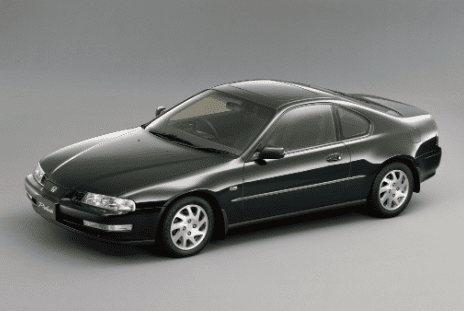9Th Gen Civic Si Transmission Problems
Last Updated on October 18, 2023 by Robert Wilson
Since the release of the 9th generation Civic Si, there have been many reports of transmission problems.
Most of these problems seem to be with the 6-speed manual transmission, although there have also been some reports of issues with the CVT automatic.
The most common problem with Civic Si seems to be that the car will jerk or lurch when shifting gears, especially from 1st to 2nd gear.
There have also been reports of the car getting “stuck” in one gear and not being able to shift up or down.

In some cases this has resulted in the car going into “limp mode” where it is only able to drive at a very slow speed.
Also Read: {Top 9 Issues} Honda Accord Problems & Fixes
Honda has issued a few service bulletins related to these transmission problems, but so far no recall has been issued.
9th Gen Civic Si is down bad | Transmission Issues
What Transmission is in a 9Th Gen Civic Si?
The ninth generation Honda Civic Si is a sport compact trim of Honda’s Civic model.
The Si (Sport Injected) trim was introduced for the third generation of Honda Civics in both Japan and North America.
For the tenth generation, the Civic Si sedan and coupe were replaced by the Type R model in North America while the hatchback body style continued as Si.
Also Read: Honda Prelude Automatic Transmission Problems
The ninth generation Civic Si features a 1.5-liter turbocharged inline four-cylinder engine that produces 205 horsepower and 192 lb-ft of torque.
It comes standard with a six-speed manual transmission, but a CVT is available as an option. The ninth generation Civic Si was offered in both sedan and coupe body styles.
The exterior of the ninth generation Civic Si features 18-inch alloy wheels, LED headlights, fog lights, and taillights.
The interior features sports seats, a leather steering wheel and shift knob, aluminum pedals, and red stitching throughout.
The ninth generation Civic Si was produced from 2016 to 2020 and is currently the most recent version of the Si trim.
What Year Civic Has Transmission Problems?
The year of the Civic with transmission problems is 2007. The main problem that has been reported is that the transmission slips when trying to shift gears.
This can be a dangerous problem if it happens while you are driving, as it can cause your car to lose power and stall.
Other years of the Honda Civic have also had reports of transmission problems, but 2007 seems to be the most affected.
If you own a 2007 Civic, it is important to keep an eye on your transmission and get it checked out if you notice any problems.
Which Civic Has Transmission Problems?
There have been a number of reports about various Honda Civic models having transmission problems.
The most common issues seem to be with the automatic transmissions, but there have also been some reports about problems with the manual transmissions as well.
Also Read: Honda Pioneer 700 Issues & Fixes
One of the biggest issues seems to be with the Civic’s CVT (Continuously Variable Transmission).
There have been a number of reports of premature wear and tear on the CVT, as well as problems with it slipping or jumping out of gear.
This can obviously be a big problem, as it can make your car very difficult to drive (not to mention dangerous). Another issue that has been reported is with the torque converter.
This is another part of the automatic transmission, and there have been reports of it failing prematurely.
This can again lead to all sorts of problems, including your car not being able to move properly or at all.
If you’re experiencing any sort of transmission problems with your Honda Civic, then it’s definitely worth taking it into your local dealership or mechanic for a check-up.
How Do I Know If My Honda Civic Transmission is Bad?
If your Honda Civic is experiencing any of the following symptoms, it’s possible that the transmission is failing and will need to be replaced:
| Common Transmission Problems | Indications |
|---|---|
| Engine revs up but slow acceleration | The engine revs high, but the car doesn’t move as quickly as expected. |
| Grinding or shaking when shifting | A grinding or shaking sensation is felt when changing gears. |
| Hesitation or struggle when accelerating | The car hesitates or struggles to pick up speed when accelerating. |
| Fluid leaking from underneath | Fluid is seen leaking from the underside of the car, often a sign of transmission issues. |
| “Check engine” light illuminated | The dashboard displays the “check engine” light, indicating a problem that may include the transmission. |
If you’re experiencing any of these issues, it’s important to have your car inspected by a mechanic as soon as possible to avoid further damage.
9Th Gen Civic Si
The civic si is a performance-oriented trim of the civic. It is available as a coupe or sedan and features a 205 horsepower engine.
Standard features on the si include summer tires, fog lights, rear spoiler, and aluminum pedals.
The ninth generation Civic saw some changes compared to previous models.
The most notable change was an increase in size; the 2012 model was about 3 inches longer and 1.5 inches wider than the 2008 model it replaced. This generated more interior space and improved cargo capacity.
Conclusion
The ninth generation Honda Civic Si was released in 2017 and quickly developed a reputation for having transmission problems.
Many owners have reported issues with the car’s shifting, grinding gears, and even complete failure of the transmission.
While Honda has issued a few recalls related to the problem, many owners are still facing expensive repairs.





